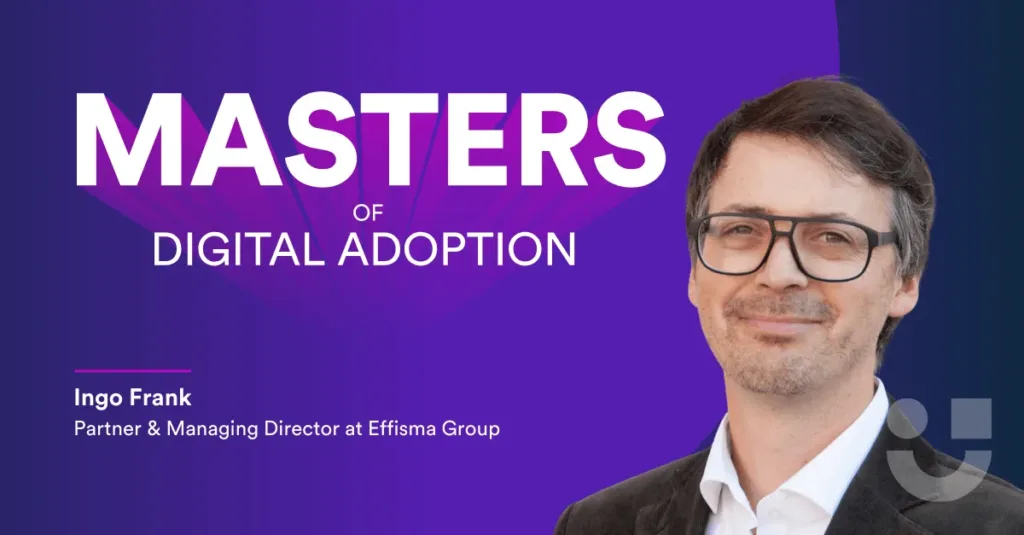Sustainable learning success in the automotive industry


Effisma Group is an agile consulting specialist in the automotive sector, working with large Original Equipment Manufacturers (OEMs) and dealerships on tailor-made concepts and solutions.
A unique and complex software landscape
Our work is heavily focussed on the sales and marketing functions within the automotive businesses, assisting them in navigating the digitalisation of the industry as it shifts from a more retail concentrated model to a more internet-based business model.
When looking at the automotive landscape, there has also been a shift from ownership to other usage models, like leasing or long-term rent.
These combined changes make for a unique and complex technology stack that throws up a lot of issues for organizations. For instance, the average ticket size is large and not a typical day-to-day online transaction. Therefore the industry is heavily regulated, and any technology or system has typically been set up to ensure conformity to those regulations. ‘Usability’ has not been a high priority factor in the development of systems. Digital adoption, therefore, has often taken a back seat, whilst legacy systems continue to be the go-to options.
Sufficient training is critical to avoid losing business
Training is essential for all stakeholders to ensure no hold-ups are caused by mistakes in data entry or missing information. Something that can potentially lead to a loss in business. Training can be time-intensive and costly, especially for the sales representatives who want to be able to focus on their job and fulfill sales targets.
Employee fluctuation within the industry adds to the need for training models to be agile and sustainable.
To create a sustainable and agile learning programme, I believe that a blended learning model is required. This allows businesses to adapt to the level of training needed, minimize time away from jobs, and be flexible to ongoing changes and updates within systems. It is about choosing the right tools for the situation. This can incorporate traditional methods like classroom training, webinars, web-based training and workshops, whilst also leaning on on-demand training and support tools.
It is often not viable to train everyone in a classroom, and that is where we have seen Digital Adoption Platforms being the most effective. The ability to provide in-app guides and support on hand helps users avoid any costly mistakes.
Successful digital adoption is something that can be beneficial to all stakeholders
Table of Contents
OEMs
For OEMs, it is simple, successful digital adoption can result in lower selling costs.
It means the sales process is faster and more efficient. Often they will invest heavily in running huge training programs and a change in system can have huge implications and create knowledge gaps. If they are provided with a simpler and integrated on-demand learning tool, like a Digital Adoption Platform, it will save them time and money.
Financial services
It is about reducing unnecessary risk.
There is a requirement to ensure that users are trained and well able to use their systems to comply with regulations that are always attached to any financial service. If they are able to master digital adoption, it results in much faster implementation of systems and features and lower risks, as data input mistakes can be avoided.
Dealerships
It can result in a much faster time to productivity for dealerships.
Coping with an exchange of employees, and employees away from the dealerships are all factors that affect the productivity and success of a dealership. A blended learning programme that incorporates on-demand learning speeds up the onboarding time, and reduces time away from their jobs.
Sales representatives
Learn faster, work faster, earn more money.
For sales representatives, they are interested in being productive as fast as possible so they can hit sales targets and earn commission. Training needs to give them the flexibility to be able to do so, and not seep into their working hours too heavily.
On-demand learning offers the real-time support needed to be productive
Blending traditional training methods with in-app guides is a fantastic way to provide a deep understanding of how systems work, and is a sustainable tactic.
Additionally, the ability to adapt and update content quickly is a big positive for businesses that often update deals, offers or price points. Users can stay informed easily, and those in charge of training can act quickly and efficiently.

